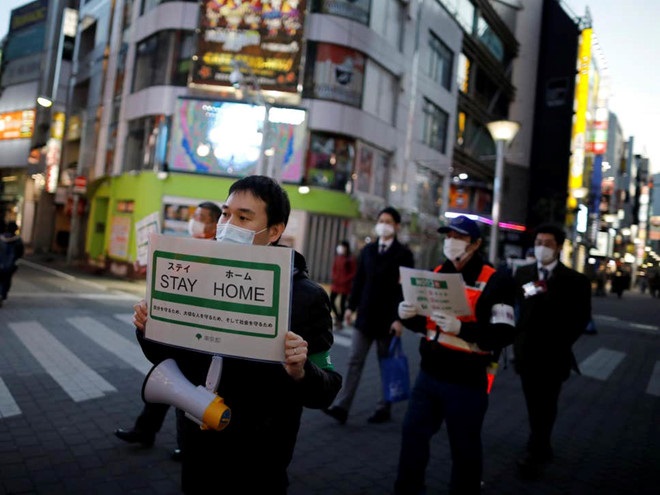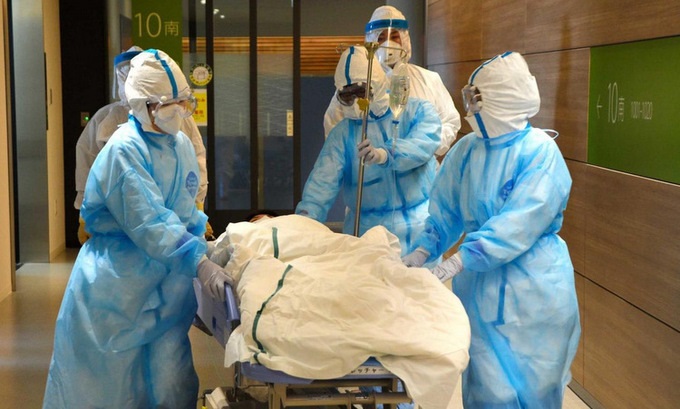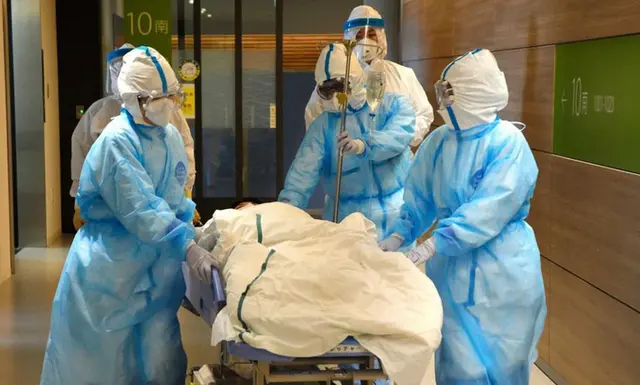By APD writer Alice
Japanese police recently found about a dozen people dead at home alone or collapsed on the streets who later tested positive for the coronavirus, which causes COVID-19. Maybe they did not die of the disease but of stigma and discrimination from people living in the same community with them.
The coronavirus has brought not only an outbreak to Japan but also a wave of bullying and discrimination against the infected persons, their families and health workers.
Kyoto Sangyo University received arson threats after some of its students were infected with the virus. A young patient in Osaka city was compared to “a murderer”, while some people in Mie, central Japan, threw stones at a patient’s house and vandalized property.
In Iwate, a man died while in self-quarantine after his future neighbors sought to bar him from moving into a retirement home and the local government office refused to register him.

Arisa Kadono, a 20-year-old girl working in food business, tested positive and was hospitalized in early April. A short time from her hospitalization, she was informed by her friends about groundless rumors related to her such as her family-run bar was a COVID-19 hotbed; she had dined with a popular baseball player who was infected earlier; she ran away from the hospital and was spreading the virus; among others. In fact, all were fake news.
“It was as if I was a criminal,” Kadono said in an interview from her home in Himeji, western Japan, after ending her three-week hospitalization.
She decided to speak out her story because she found that there are many other people who also have faced discrimination and prejudice, with a wish to change people’s attitude and behavior toward those infected with the coronavirus.
Amid the stigma against coronavirus patients, some who got the virus avoided seeking medical care, thus raising the risks of infection spreading in the community, according to clinical psychologist Reo Morimitsu at the Suwa Red Cross Hospital.

Not only the infected and their family members, medical workers who are risking their lives to care for patients are also a main target of discrimination.
A 30-year-old nurse who declined to give her name as she feared of being targeted if identified said medical workers like her are working hard at the front lines of the anti-virus fight under huge pressure. So such discrimination is discouraging and demoralizing.
Another nurse asked by some mothers to leave a Tokyo park where her children were playing. Some others were unwelcome at restaurants and rejected by taxi drivers. Several kindergartens refused to receive children of doctors and nurses.
A veteran nurse in the northern island of Hokkaido said the mother of one of her coworkers was suspended from work. The husband of another was told at a job interview he wouldn’t be hired because of his wife’s job.
Even those indirectly associated with the illness such as people working at grocery stores, delivering parcels and carrying out other essential jobs also are facing discrimination.
Experts say the prejudice against those people stems from deeply rooted views about purity and cleanliness in a culture that rejects anything deemed to be alien, unclean or troublesome. It is a legacy of feudal times, when some Japanese engaged in professions such as leather tanning and butchering were deemed unclean. Their descendants still faced discrimination. People suffering from ailments such as Hansen’s disease, or leprosy, were likewise forced to live in isolation decades after a cure was found.
To deal with this situation, the Japanese government has launched a campaign to raise public awareness of the coronavirus and ease harassment and stigma against COVID-19 patients, medical workers, and others concerned.
The Japanese Health Ministry issued a directive asking nursing homes to receive children of medical workers.
Some places in Japan have begun following the examples set in Europe and elsewhere of praising medical workers and others in essential jobs, while a number of agencies have started collecting donations and other support for hospitals.
As of 7 am on May 14, Japan recorded 15,968 coronavirus infections, including 657 deaths.
(ASIA PACIFIC DAILY)
 简体中文
简体中文

